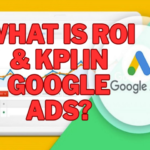Zero-click search in SEO refers to a search query where the user finds the answer they’re looking for directly on the search engine results page (SERP) without needing to click on any website link. Essentially, Google or another search engine provides a complete answer, eliminating the need for further exploration on other websites.
Table of Contents
How Zero-click Search Impact on SEO?
1. Decreased Website Traffic:
Zero-click searches can lead to a decrease in organic traffic for websites as users find answers directly on the SERP.
2. Focus on Featured Snippets and Knowledge Panels:
SEO strategies need to adapt to include optimizing content for these zero-click result formats.
3. Emphasis on Direct Answers:
Content needs to be clear, concise, and directly address user queries to potentially be featured in these formats.
4. New Opportunities:
Zero-click searches can also create new opportunities for brands to establish authority and expertise by being featured in prominent positions on the SERP.
Strategies to Optimize for Zero-click Searches in SEO
To optimize for zero-click searches in SEO, focus on providing direct answers to user queries and appearing in featured snippets, People Also Ask (PAA) boxes, and other SERP features. This involves crafting clear, concise content that directly answers common questions, utilizing schema markup, and optimizing for local SEO.
1. Optimize for Featured Snippets and PAA Boxes:
Identify Opportunities:
Use tools like Ahrefs or Semrush to find relevant keywords and content that can be optimized for featured snippets.
Provide Concise Answers:
Structure your content with clear, concise answers to questions, using headings (H2, H3) that mirror user queries.
Utilize Lists and Tables:
Break down information into bullet points, numbered lists, and tables for easy readability and extraction by search engines.
Answer Related Questions:
Include answers to related questions in the content, often found in PAA boxes, to increase visibility and potential for multiple entries in the SERP.
2. Leverage Local SEO:
Optimize Google Business Profile:
Claim and optimize your Google Business Profile with accurate information, relevant keywords, and high-quality photos.
Local Schema Markup:
Implement local schema markup to provide search engines with detailed information about your business and location.
Encourage Reviews:
Actively seek and respond to customer reviews on Google and other relevant platforms.
3. Implement Schema Markup:
Structured Data:
Use schema markup to provide search engines with context and structure for your content, making it easier to understand and eligible for rich results.
FAQ, How-To, and Local Business:
Implement schema types like FAQ, How To, and Local Business to enhance visibility in relevant SERP features.
4. Enhance Content for AI Overviews
AI-Friendly Content:
Structure your content with clear headings, concise answers, and bullet points to align with how AI systems extract information.
Visuals:
Incorporate relevant images, videos, and other visuals to improve the user experience and potentially appear in visual search results.
5. Other Important Strategies
Keyword Research:
Focus on keywords that trigger featured snippets, PAA boxes, and the local pack rather than solely on keywords with high search volume.
Readability:
Ensure your content is easy to read and understand for both users and search engines.
E-E-A-T:
Emphasize Experience, Expertise, Authority, and Trustworthiness (E-E-A-T) to build credibility and improve rankings in zero-click search features.
Content Strategy:
Adapt your content strategy to address the rise of zero-click searches by providing concise, structured answers to user questions.















